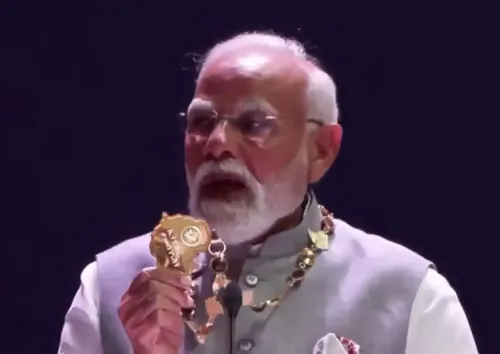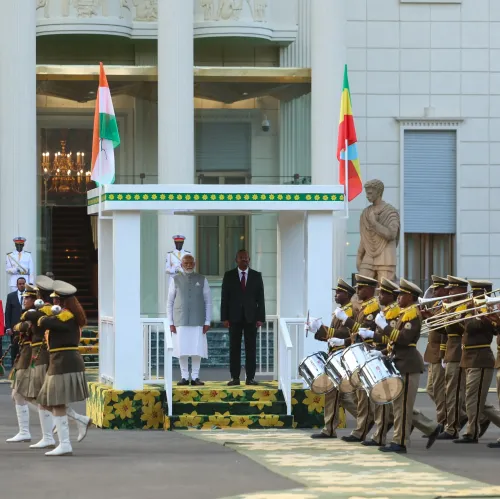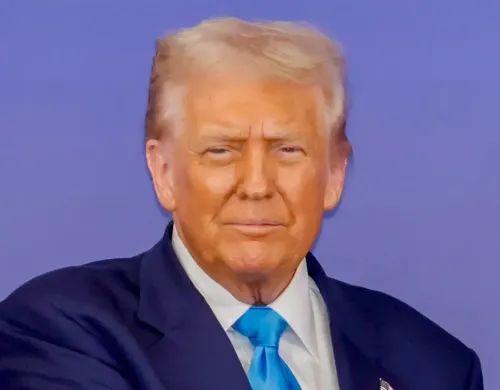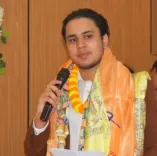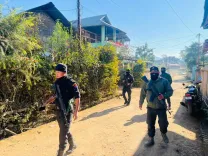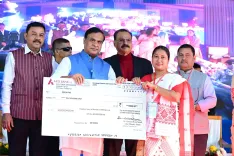Bangladesh I&B Advisor Claims Awami League is an 'Imported Force' Unfit for Elections
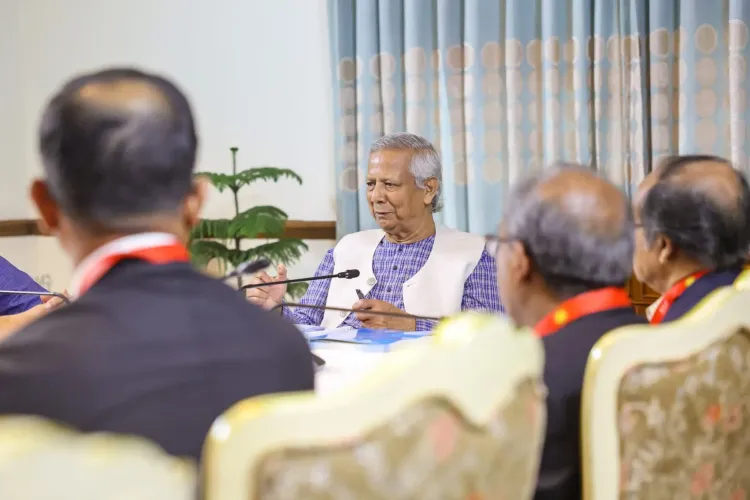
Synopsis
Key Takeaways
- Mahfuj Alam calls Awami League a 'transplanted force.'
- Yunus states no plans to ban Awami League.
- Experts suggest contradictions indicate conspiracy against Awami League.
- Student groups demand a ban on Awami League amid political unrest.
- UN advises against banning political parties in elections.
Dhaka, March 22 (NationPress) A prominent advisor of the interim government, headed by Chief Advisor Muhammad Yunus, has proclaimed that the Awami League, previously led by former Prime Minister Sheikh Hasina, will not be granted any foothold in Bangladesh.
During discussions regarding the national elections scheduled for December, Information and Broadcasting Advisor Mahfuj Alam labeled the Awami League as a 'transplanted force' from abroad, as reported by local media on Saturday.
'Awami League is not a native force… it is fundamentally an imported force from abroad. The strings of this kite (Awami League) are manipulated in Delhi. This kite will no longer be permitted to soar in Bangladesh,' Alam was cited as saying by the leading Bengali newspaper, Prothom Alo.
Recently, Yunus indicated that the interim government has no intention of prohibiting the Awami League. In a separate statement last month, he mentioned that the Awami League must determine its participation in the elections whenever they occur.
'They (the Awami League) have to decide if they wish to proceed; I cannot make that decision for them. The election commission determines who can participate in the elections,' Yunus was quoted as saying in an interview with the British public service broadcaster.
Yunus's remarks suggest a shift from his previous assertions when he stated that the Awami League has 'no place' in the political landscape of Bangladesh.
Experts believe that the conflicting statements from the interim government indicate a growing conspiracy to exclude the Awami League from electoral processes.
Numerous student organizations and the newly-formed National Citizen Party, which were pivotal in the nationwide protests and unrest in Bangladesh during July and August 2024 that resulted in the downfall of Hasina's government, are now vocally advocating for a ban on the Awami League.
The abrupt removal of Hasina in August was perceived internationally as a significant blow to the democratic framework within the country. The interim government has also faced substantial backlash for harboring radical and extremist Islamic groups.
In October, the interim government under Yunus prohibited the Bangladesh Chhatra League (BCL), the student affiliate of the Awami League, citing its alleged involvement in murder, torture, rape, and terrorism under the Anti-Terrorism Act of 2009. This ban was viewed as a precursor to a potential ban on the main party.
Conversely, this same interim government lifted a ban on the extremist Islamic party Jamaat-e-Islami and its student wing, Islami Chhatra Shibir, immediately following the collapse of Hasina's administration in August 2024.
In December, Chief Election Commissioner (CEC) AMM Nasir Uddin stated during a meeting with election officials at the Chittagong Circuit House that the Awami League is permitted to partake in elections unless either the government or judiciary imposes a prohibition against the party.
Any prohibition on the Awami League would contravene the directives set forth by the United Nations regarding the non-banning of political parties in elections.
'Avoid political party bans that could obstruct a genuine multiparty democracy and disenfranchise a significant portion of the Bangladeshi electorate,' stated a fact-finding report from the Office of the United Nations High Commissioner for Human Rights (OHCHR).


